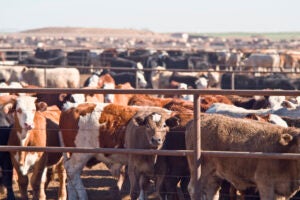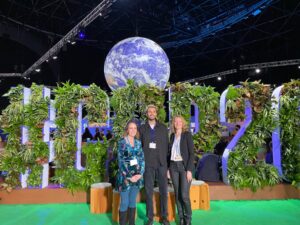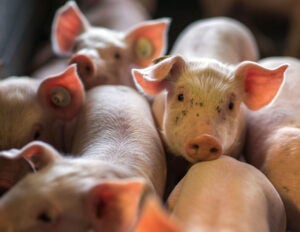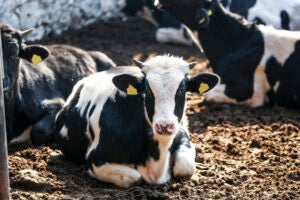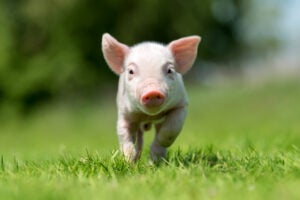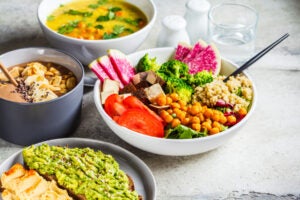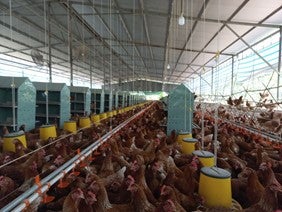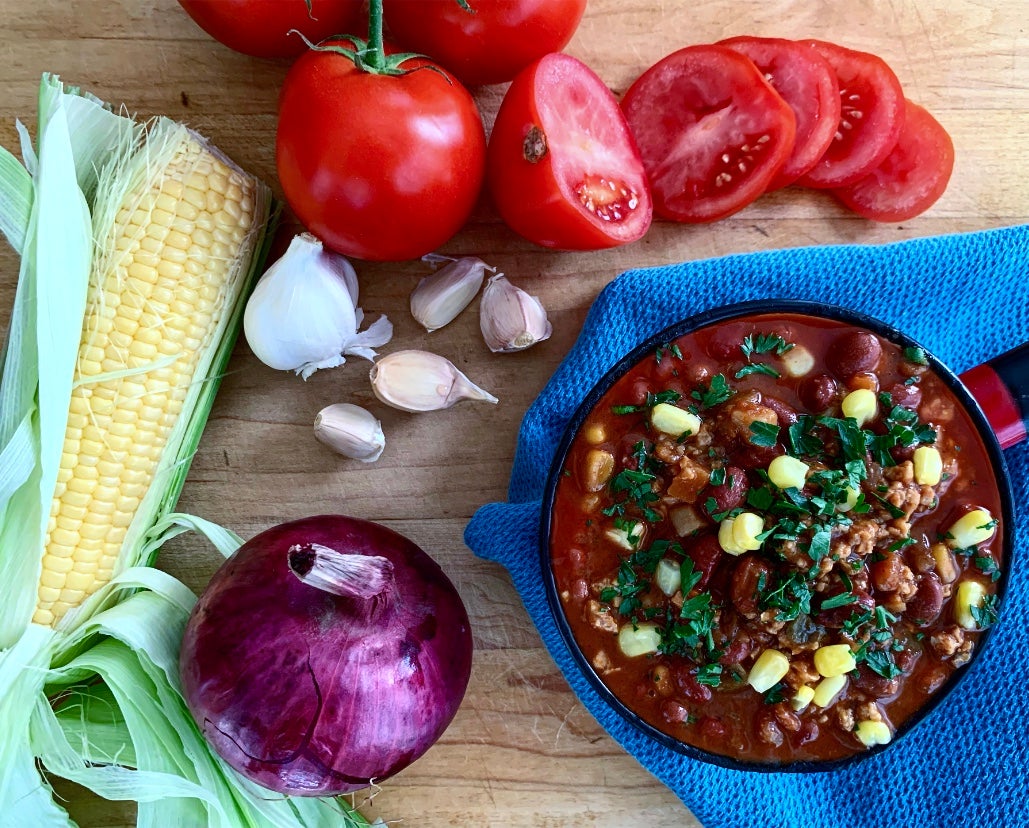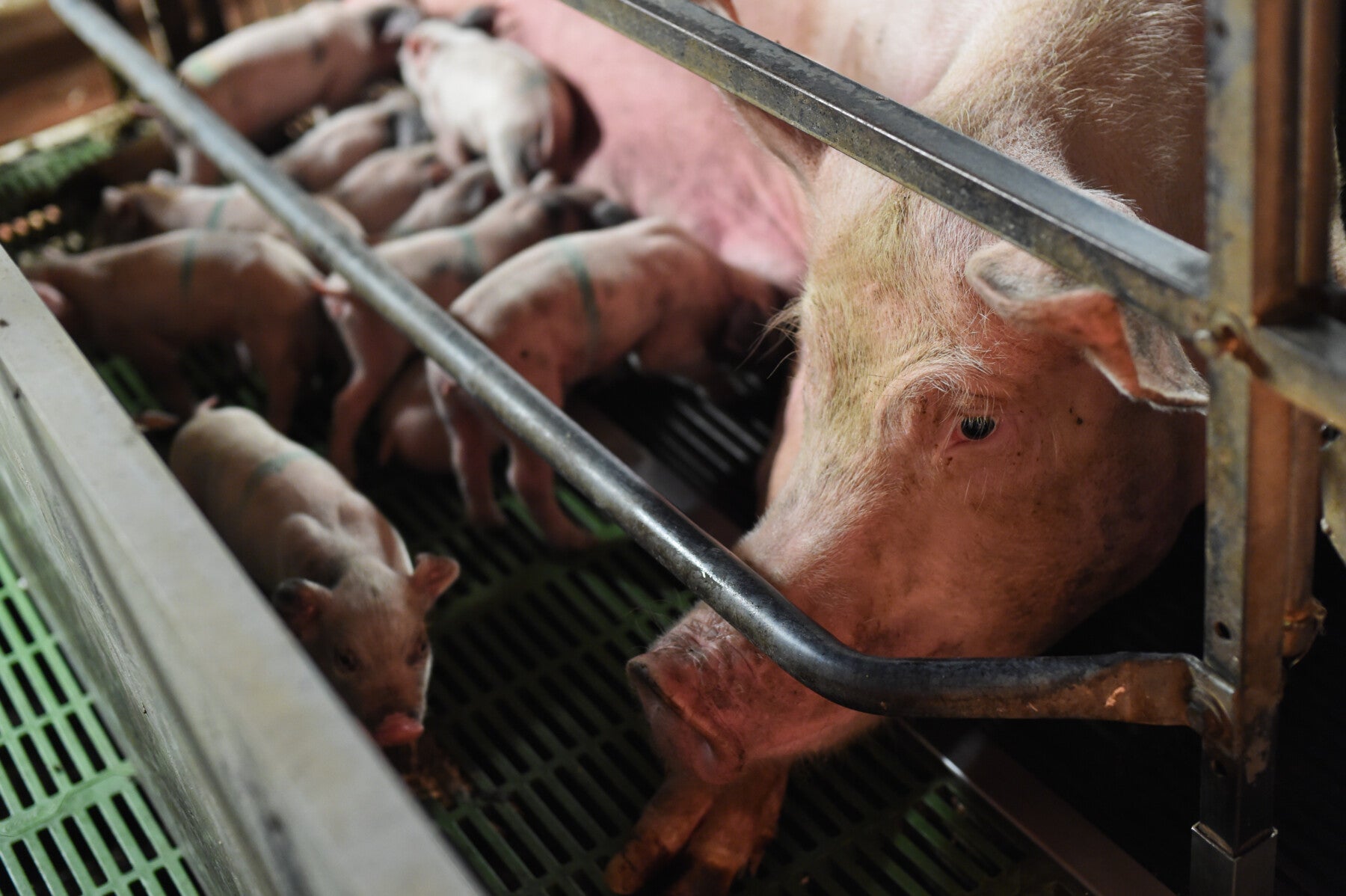
The animal welfare legislation that the EU put in place around the turn of this century is seriously outdated and incomplete, and fails to sufficiently meet the welfare needs of the billions of sentient beings who are kept and killed in the EU for food.
Thankfully, the European Commission recently committed to revising the existing body of EU animal welfare legislation by 2023, bringing it in line with current animal welfare science, and to broaden the scope of EU rules to protect animal welfare.
The Commission has launched a public consultation asking people what they think about animal welfare and what kind of rules need to be improved.
We need as many animal advocates as possible to seize this opportunity to tell the commission that we want the strongest possible rules for farm animals in Europe.
Those wishing to maintain the status quo and to keep farm animals living under inadequate living conditions will also be making their voices heard. Animal advocates will need to shout louder!
Comment now to help animals
In order to fill in the Commission’s questionnaire, you will need to register on the EC website. An email with activation link for your registration will then be sent to the email address you provide. The Commission’s questionnaire itself is quite complex and can be a bit confusing if you are not an expert on animal welfare. Here are our suggestions for how to respond to the online questionnaire.
Deadline: The public consultation will run until 21st January 2022. But please, don’t wait. Speak out for animals today!
More about the issues under consideration
Animal welfare standards in the EU
While all animals kept for production purposes in the EU are afforded a basic level of protection on farms and during both transport and slaughter, species-specific standards exist only for laying hens, meat chickens, pigs and calves. And even these protections are now out-of-date and need to be brought in line with current animal welfare science.
Having common rules on animal welfare also means that farmers can operate on a more level playing field wherever they live in the EU. Producers often claim that having to follow these rules is burdensome, but protecting the welfare of the animals under their care should always be a priority. Ensuring good welfare is also necessary to achieve good animal health.
HSI/Europe believes that the EU must urgently update existing animal welfare standards and extend the legislative scope to ensure that there are rules for all species kept for food. This must also include an end to caged confinement for all farm animals.
Animal welfare during transport
While we are also working to reduce the consumption of animal products, it is imperative to improve the welfare of the animals being raised and killed for food, especially during their last hours, when they experience immense suffering. Transporting animals for long distances is senseless given that they could be slaughtered more locally and their carcasses transported.
There are EU rules governing live transport, but these are inadequate, outdated and poorly enforced by many Member States. HSI/Europe is of the opinion that maximum journey times should be introduced and more specific requirements are needed for the transport of different species. Transport of unweaned calves and other vulnerable animals should be prohibited.
It is also important that the export of live animals to non-EU countries for both slaughter and breeding be banned. Time and time again, the horrific conditions of animals transported by road and sea for slaughter in, for example, the Middle East, have been exposed. Animal transports also routinely get stuck for days at the EU’s borders, leaving animals to suffer at high temperatures. This must end.
Animal welfare on farms
The billions of animals kept on EU farms deserve better treatment. HSI/Europe strongly believes that action needs to be taken to phase out the caged confinement of farm animals, such as laying hens, within a maximum of five years.
Surgical mutilations, such as tail docking, beak-trimming, dehorning and piglet castration, should be prohibited. These practices are cruel and unnecessary.
Many consumers also do not even realise that there are no species-specific EU animal welfare standards for dairy or beef cattle, let alone for sheep, goats, rabbits, turkeys, ducks, geese or farmed fish. This must change. We need standards tailored to the welfare needs of each species kept for food production. Imported animal products should also be conditionally subject to EU animal welfare requirements.
What HSI/Europe does NOT want to see are welfare standards for mink, foxes and raccoon dogs, as creating minimum standards for animals bred for fur would give legitimacy to the fur industry. It is not possible to achieve good welfare for animals on fur farms. Keeping animals solely for the purpose of fur production is ethically unacceptable and inherently inhumane. The practice is already banned in many EU Member States due to animal welfare concerns.
Aside from regulating the cross-border trade in dogs and cats, legislating for the welfare of these companion animal species is generally deemed to be a competence of EU Member States. However, HSI/Europe is convinced that having harmonised EU rules for both the commercial breeding of dogs and cats and the operation of animal shelters could be helpful to prevent animal welfare problems.
Welfare at slaughter
The EU rules to protect the welfare of animals at the time of killing are outdated and need to be brought in line with current scientific understandings. It is vital that electrical water bath stunning, as well as the use of CO2 as a stunning method for pigs, be prohibited. Slaughterhouses should also no longer be able to use electric prods.
It is also important that specific animal welfare rules for killing farmed fish be introduced. HSI/Europe also believes that the systematic killing of day-old male chicks should be prohibited. This obscene practice stems from the fact these baby birds are deemed economically useless in the poultry industry. It is now also possible to identify the sex of chicks in embryo.
Animal welfare labelling
It is important that consumers be able to make informed choices about purchasing animal products. Any EU labelling scheme should, however, be meaningful and must include information with regard to the method of production used to farm the animals, as well as the welfare standards the animal has been farmed under.
HSI/Europe maintains that an EU animal welfare label should apply to all products of animal origin, not just to animals farmed in cage systems (which should be banned altogether). Broader animal welfare criteria also need to be incorporated into an EU animal welfare label. It is important that consumers be aware not only of the method of production, but also of where the animals are born, raised and slaughtered.
Please read our suggestions for responses and then comment to improve welfare for farm animals in the European Union.

